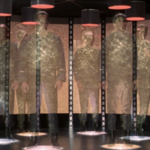The 2016 defunding of the project left a big gap in general practice data, says the RACGP.
The RACGP wants national data collection and seamless data sharing to be major priorities for investment as part of any new iteration of the National Health Reform Agreement.
In its submission to the NHRA’s mid-term review, the college called for the resurrection of the University of Sydney’s Bettering the Evaluation and Care of Health national study of GP clinical activity, or the development of a contemporary equivalent.
“Opportunities for reforms to the hospital and general practice interface can be better identified through high-quality data about how general practices are operating,” the RACGP submission reads.
“BEACH is a valid and reliable GP dataset in Australia, with almost 1.8 million GP-patient encounter records from 1998 to 2016. The conclusion of BEACH in 2016 left a significant and unfilled gap in general practice data, and the resumption of data-gathering activities should be a key priority for government to inform health reform activities, including the review of the NHRA Addendum.”
BEACH was defunded in June 2016 by the Turnbull Liberal government. “BEACH has been the only continuous national study of general practice in the world which relies on random samples of GPs, links management actions to the exact problem being managed, and provides extensive measurement of prevalence of diseases, multimorbidity and adverse medication events,” said project leader Professor Helena Britt at the time.
Data from BEACH are still publicly available and have been used many times in subsequent research projects.
In its submission to the NHRA review, the RACGP emphasised the impact of “siloed healthcare” on patient outcomes and GP efficiency and satisfaction.
“The primary and secondary care systems are not well integrated in Australia,” said the submission.
“As a result, the transfer of care between them is a significant pain point for patients within the Australian health system.
“GPs are forced to continue using paper-based systems such as fax machines to refer patients to hospitals. Communication with other health services can be further complicated if details in common databases like Healthdirect or the National Health Services Directory aren’t up to date.
“Many hospitals will have unique templates GPs are required to use to refer patients but provide little guidance on how to fill them out and update them without notifying referring GPs. These templates rarely integrate with practice management software, requiring GPs to fill them out manually, taking time away from seeing patients. These templates can turn referrals into a bureaucratic mess, requiring GPs to spend valuable time sorting through PDFs.
“Rejection of referrals for administrative and bureaucratic reasons can be distressing for patients whose care is now being delayed.”
The college recommended the NHRA should require hospitals and other health services to use standardised, secure, interoperable digital systems for referral and discharge between general practices and hospitals that are compatible with existing general practice management systems.
“The system should be able to display patient information and a patient’s place on waiting lists in real-time for both GPs and hospitals. The system should allow a GP to electronically refer a patient and see how long the patient will be waiting to receive treatment,” said the submission.
“Such a system should require the same information, in the same format, be requested from referring GPs regardless of which hospital or health service they are referring to.
“Such a system could prompt the GP to address critical referral eligibility criteria, thus avoiding ineligible referrals in many instances.
“On discharge, the discharge summary could automatically include details such as what medications and tests were provided to the patient during hospitalisation including relevant test results, any adverse reactions to medication and a recommended GP management plan or a hospital escalation pathway if the condition worsens in the community.”
Virtual models of care
The RACGP told the NHRA review that hospitals currently receive “significant disincentives” for virtual models of care that would benefit patients who were being cared for by the hospital but who were not admitted or accepted by an outpatient clinic.
“Reforms should be made to hospital payment schemes to facilitate funding of virtual initiatives aimed at reducing hospitalisations and facilitating the easier transfer of care to a patient’s GP,” the college said.
It also called for reforms to allow GPs to claim MBS items for telehealth consultations with patients receiving hospital-in-the-home care for health issues unrelated to their hospitalisation.
Also on the wishlist was an end to the prioritisation of videoconferencing over telephone consultations by the MBS, “despite both patients and GPs consistently demonstrating a preference for telephone consultations”.
“The RACGP encourages governments to support patient access to telehealth without preferencing one technology over another to prioritise access to care.”





